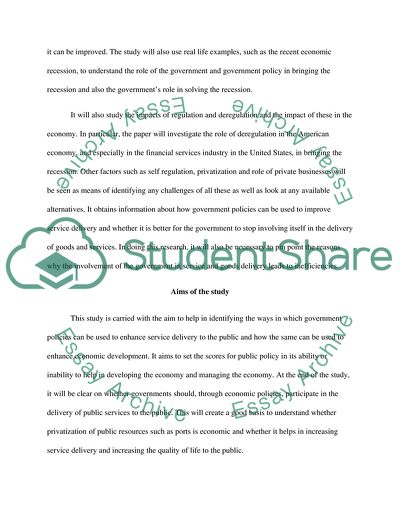Cite this document
(Economics of Public Policy Term Paper Example | Topics and Well Written Essays - 3500 words, n.d.)
Economics of Public Policy Term Paper Example | Topics and Well Written Essays - 3500 words. Retrieved from https://studentshare.org/politics/1794859-should-governments-be-kept-as-far-away-as-possible-from-the-provision-of-goods-and-services-because-government-interference-only-ever-results-in-increased-inefficiency
Economics of Public Policy Term Paper Example | Topics and Well Written Essays - 3500 words. Retrieved from https://studentshare.org/politics/1794859-should-governments-be-kept-as-far-away-as-possible-from-the-provision-of-goods-and-services-because-government-interference-only-ever-results-in-increased-inefficiency
(Economics of Public Policy Term Paper Example | Topics and Well Written Essays - 3500 Words)
Economics of Public Policy Term Paper Example | Topics and Well Written Essays - 3500 Words. https://studentshare.org/politics/1794859-should-governments-be-kept-as-far-away-as-possible-from-the-provision-of-goods-and-services-because-government-interference-only-ever-results-in-increased-inefficiency.
Economics of Public Policy Term Paper Example | Topics and Well Written Essays - 3500 Words. https://studentshare.org/politics/1794859-should-governments-be-kept-as-far-away-as-possible-from-the-provision-of-goods-and-services-because-government-interference-only-ever-results-in-increased-inefficiency.
“Economics of Public Policy Term Paper Example | Topics and Well Written Essays - 3500 Words”, n.d. https://studentshare.org/politics/1794859-should-governments-be-kept-as-far-away-as-possible-from-the-provision-of-goods-and-services-because-government-interference-only-ever-results-in-increased-inefficiency.


